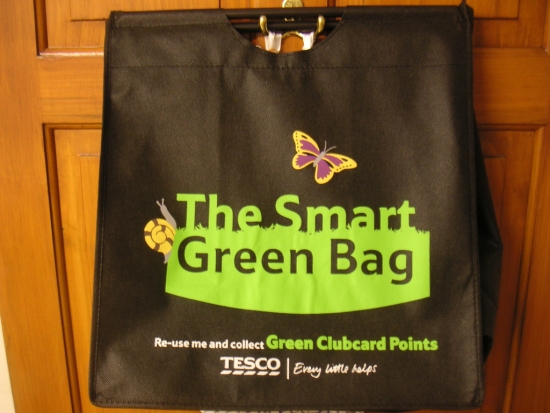UK consumers have been forced to change their usual shopping habits as a result of the recession. Luxuries have had to be cut back on, budgets now have to be stuck to rigidly and, perhaps most significantly, the “big weekly shop” has become something of a thing of the past.

This point, especially, has been reflected in the latest figures released by the British Retail Consortium (BRC). The research shows that British shoppers used 1 per cent more carrier bags in 2012 than they did in 2011.
Fortunately, this has not had a detrimental effect on the supermarket drive to lessen the environmental impact of plastic bags. The total weight of carrier bags used fell by 3 per cent, meaning that recycling initiatives are certainly having a positive effect.
Furthermore, bag use remains around a third lower than the baseline figure recorded in 2006, even though the volume of annual sales has leaped by 8.6 per cent during the same period.
Director of Food and Sustainability at the BRC, Andrew Opie, highlights the ongoing steps supermarkets are taking in a bid to be seen as eco-friendly.
He says; “Bag usage may not have fallen, but this doesn’t mean that supermarkets’ progress has stalled on addressing this and wider environmental issues.
“Supermarkets’ environmental work extends well beyond carrier bags to wider and more important green goals including reducing packaging, domestic food waste and waste to landfill.
“Retailers have beaten a range of challenging Government targets in these areas, delivering real environmental benefits as well as value for customers.”
Rather than one large weekly grocery shop, consumers are now more likely to spread their budget across several days in a trend known as “top up shopping.” In order to reflect this, supermarket bags now tend to be smaller and lighter, explaining the decreasing weight of annual carrier bag usage.
60 per cent of UK stores included in the survey now offer recycling points for carrier bags and food packaging, and many more offer loyalty points or voucher schemes for consumers who re-use their plastic bags. Additionally, those supermarkets which offer delivery options are now attempting to introduce similar schemes or alternatively persuade customers to have their orders delivered “bag free.”
Mr Opie continues; “Consumer habits are evolving rapidly, but the sector is still working hard to keep pace whilst helping customers to reduce their environmental impact.
“The majority of shoppers do their best to reuse bags and take as few new bags as possible, and the rapid roll-out of store recycling points and green incentives online is making this good practice easier and more widespread.”
With shops in Wales now charging 5 pence per bag and other countries in the UK considering following suit, there is no doubt that supermarkets are beginning to become more environmentally aware. Hopefully, with the recent upturn in the economy, this good work can be continued as consumers become more financially secure.
Do you think England, Scotland and Northern Ireland should adopt the “bag tax”, or will this cause consumers to further cut back on their shopping trips?
Previous Post
Online Retailers Attack Sales Tax Proposals